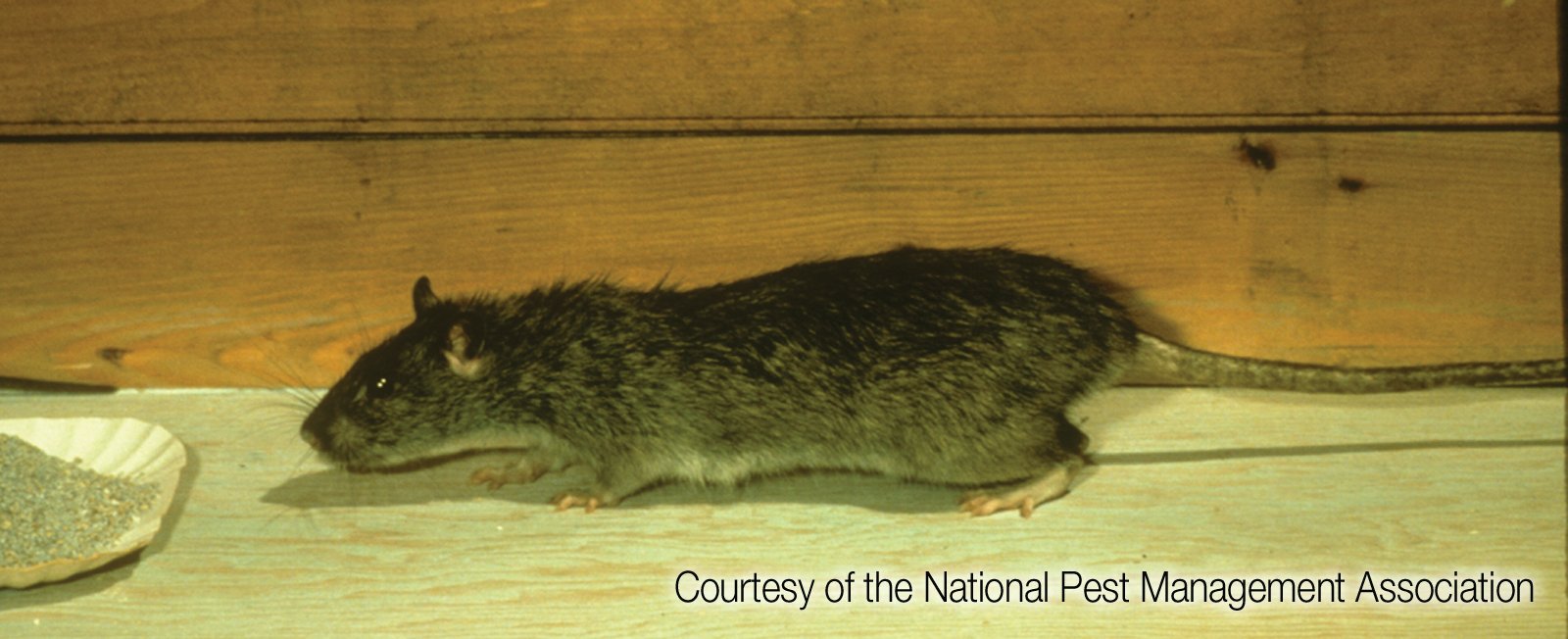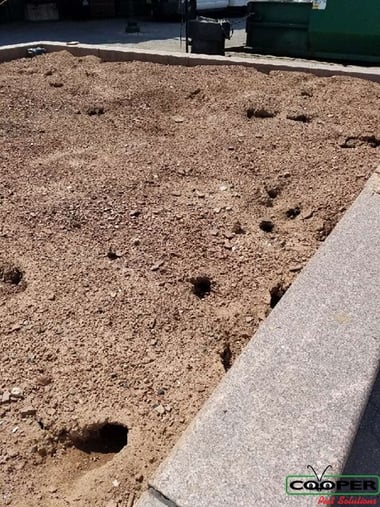Eliminate Rats in NJ and PA with Cooper
 What are rats? Rats are large rodents that live in the New Jersey and Pennsylvania area, as well as across the United States. These nocturnal pests are destructive and create unsanitary environments when they infest residential homes. Urine and feces are of serious concern because of the rodent’s tenancy to get into food and share living space with humans. Their strong teeth can chew through wires, causing electrical outages and problems. Rat infestations are much more challenging when it comes to eliminating an active issue, which is why it’s imperative to address rat activity the moment it’s observed.
What are rats? Rats are large rodents that live in the New Jersey and Pennsylvania area, as well as across the United States. These nocturnal pests are destructive and create unsanitary environments when they infest residential homes. Urine and feces are of serious concern because of the rodent’s tenancy to get into food and share living space with humans. Their strong teeth can chew through wires, causing electrical outages and problems. Rat infestations are much more challenging when it comes to eliminating an active issue, which is why it’s imperative to address rat activity the moment it’s observed.
What kinds of rats live in New Jersey and Pennsylvania?
The Norway rat is the most common that homeowners and commercial business owners face in our area.
Norway rats are large rodents, measuring 7-9.5 inches long with brown and black fur. Inside, the Norway rat commonly nests on the lower levels such as basements, but if the population is too large, they may be found in the attic and ceiling areas. Their nests are built from soft material like paper or grass chewed into small pieces they gather from surrounding areas. Did you know that Norway rats are excellent swimmers? According to Columbia University, migrating rats can swim up to half a mile and survive by treading water for 3 days. Their diet consists of fish, nuts, cereal grains, and meats.
How can I tell if I have rats?
Rats are nocturnal, with their peak activity at dusk or before dawn. When the population is large or they are disturbed or hungry, you can see activity during the day.
Norway rats will leave a hind foot track of about 3/4-1 inch whereas a mouse's track measures 3/8 of an inch or less. Rats will also drag their tails, leaving a mark between their foot tracks. Unscented baby powder or flour, lightly sprinkled can help you determine tracks and their runways as they cross suspected areas. They gnaw holes about 2 inches or more in diameter with rough edges to create entry points around your home and into trash cans. Rat burrows can be found along foundations, or beneath rubbish and shrubbery. If the burrow is active it is usually clear of vegetation. Rat runways are smooth and well packed. Indoors, these runways are free of dust and dirt.
Why do I have rats?
Rats will seek food outside, but many times will come inside at night to forage for food and return to their burrows. They can travel hundreds of feet which could mean that you are suffering from your neighbor’s rat issue. Needing a water source, they can obtain water from toilets, sinks, rain puddles, or condensation from utility pipes. Their nesting burrows on the outside are often along the foundation of walls. As the rat family grows, more burrows are built, resulting in a network of underground tunnels. Outdoors, rats scavenge for fruit from trees growing on your property and even dog droppings.
Why should I be concerned with rats?
They prefer to gnaw on wood in spots such as doors, corners, and ledges but can damage electrical wiring. Rats may bite or chase you if they feel threatened. Rat-bite fever is a major concern when it comes to rat scratches, bites, or consumption of food that has come into contact with rat droppings or urine. Symptoms of rat-bite fever include rashes on the hands and feed, sore throat, vomiting, fever, and muscle pain. If left untreated, rat-bite fever can cause serious health implications or even death.
Rats also pose threats to your health and home by being frequent carriers of ticks and fleas. Fleas that fall off of the rodent can begin breeding in your home, causing an additional unpleasant pest issue.
How can I get rid of rats?
The best way to avoid a rat infestation is to prevent them from entering in the first place. You can prevent rodent infestations by ensuring that all of the cracks, crevices, gaps, or other vulnerabilities on the exterior of your home are properly sealed. Food that’s stored around your home in easily penetrable containers such as sugar and cereal should be moved to air-tight containers. If you find contaminated food, discard it immediately and wash your hands. Ensure that all leaky or broken pipes are repaired. Another step towards rat prevention is to secure your trash can lids.
How does Cooper get rid of rats?
Rat control is highly customized per the unique situation at your home. Each rat infestation can be different, and controlling them can be like a game of chess. Once you begin our rat control program, one of our rat specialists will visit your home for an initial inspection. A plan will then be put in place to get rid of the rats as quickly and efficiently as possible. Unlike mice, rats are much more resistant to change. If they find a food or water source that they prefer, it becomes very challenging to get them to change their minds. Rat control involves a multitude of strategies including baiting and exclusion. Multiple visits are required to monitor the rat activity and modify the program if needed.
How soon can you get here?
At Cooper Pest Solutions, our goal is to provide fast, convenient service with the peace of mind that you are in good hands. We understand that pest problems can be stressful and overwhelming, so we strive to provide same-day or next-day service. Call us at 1-800-949-2667 to learn more about our rat control options or to schedule service at your home.

